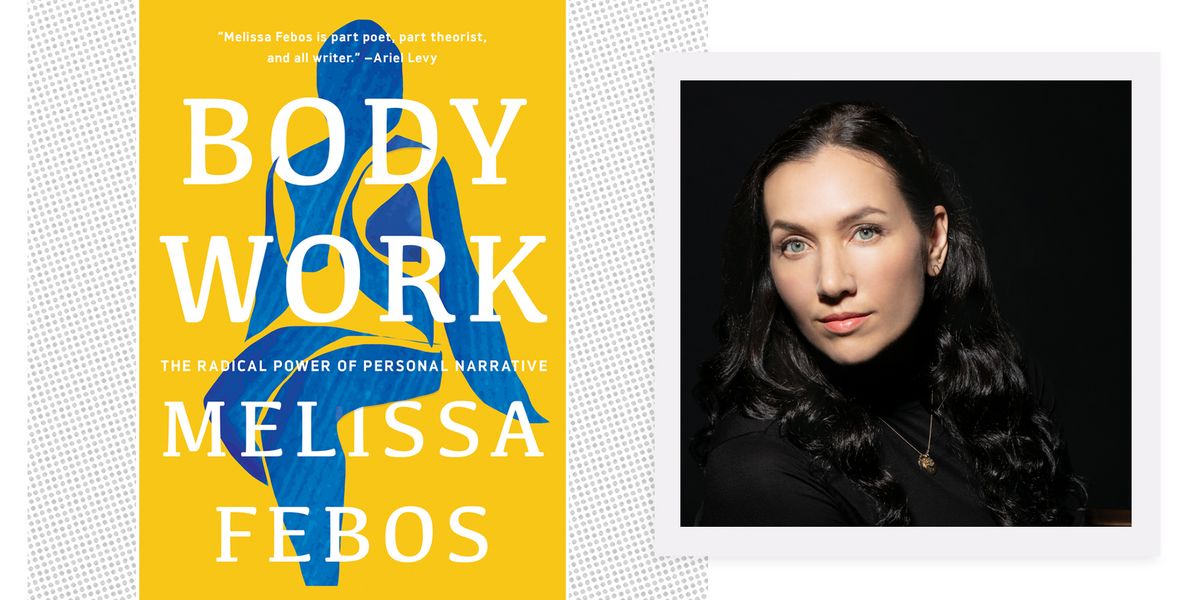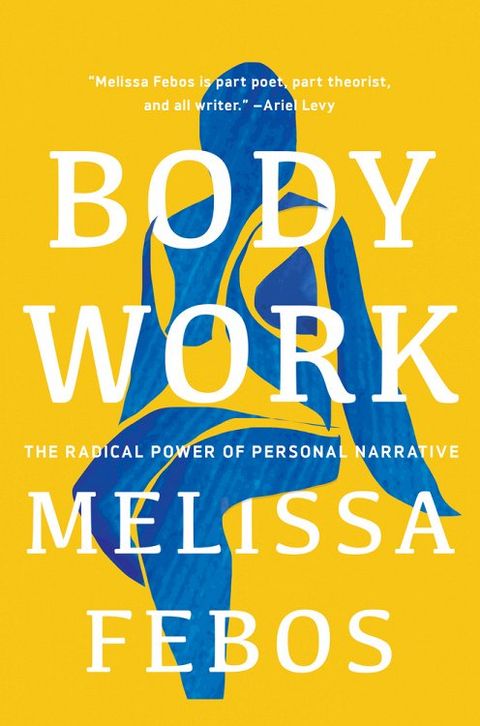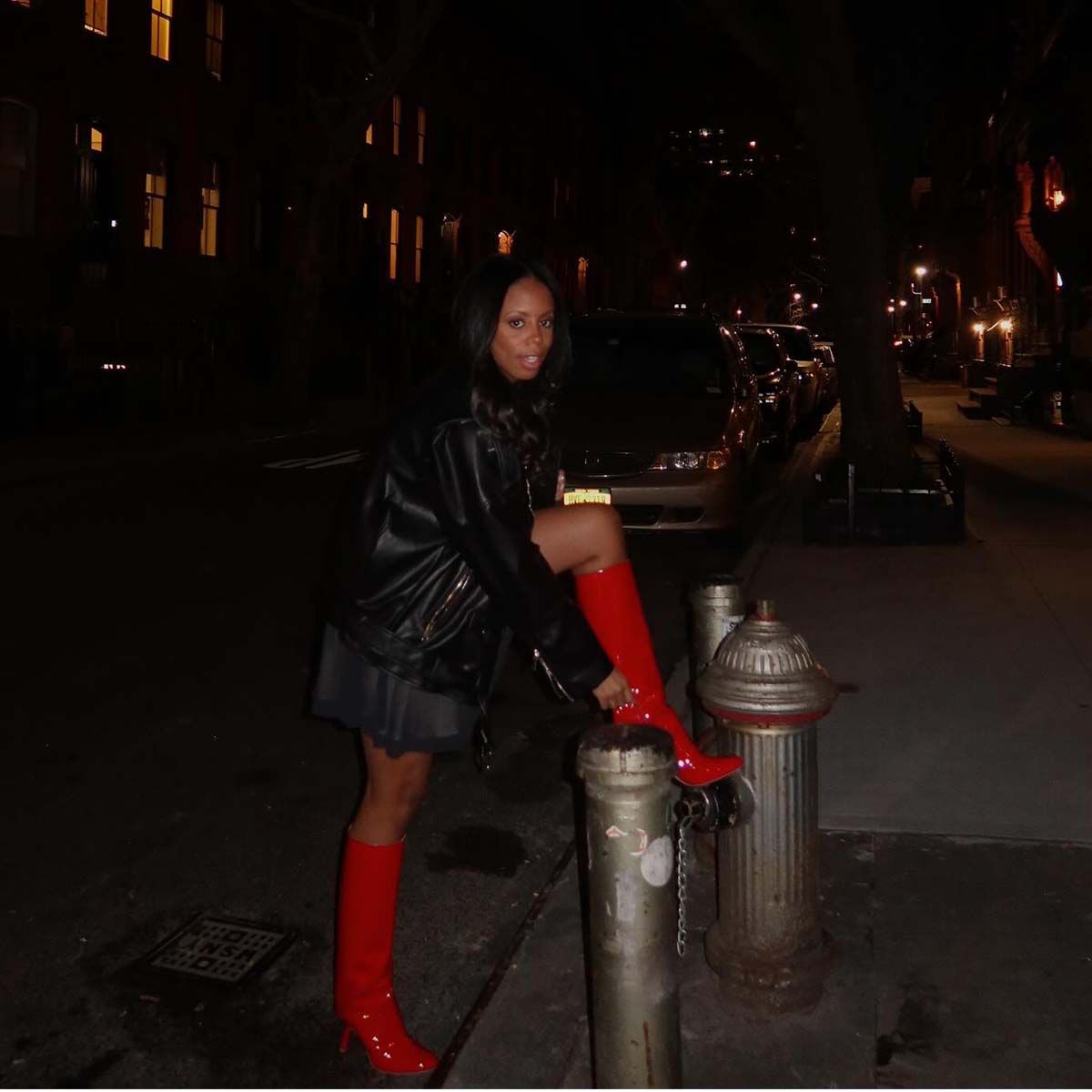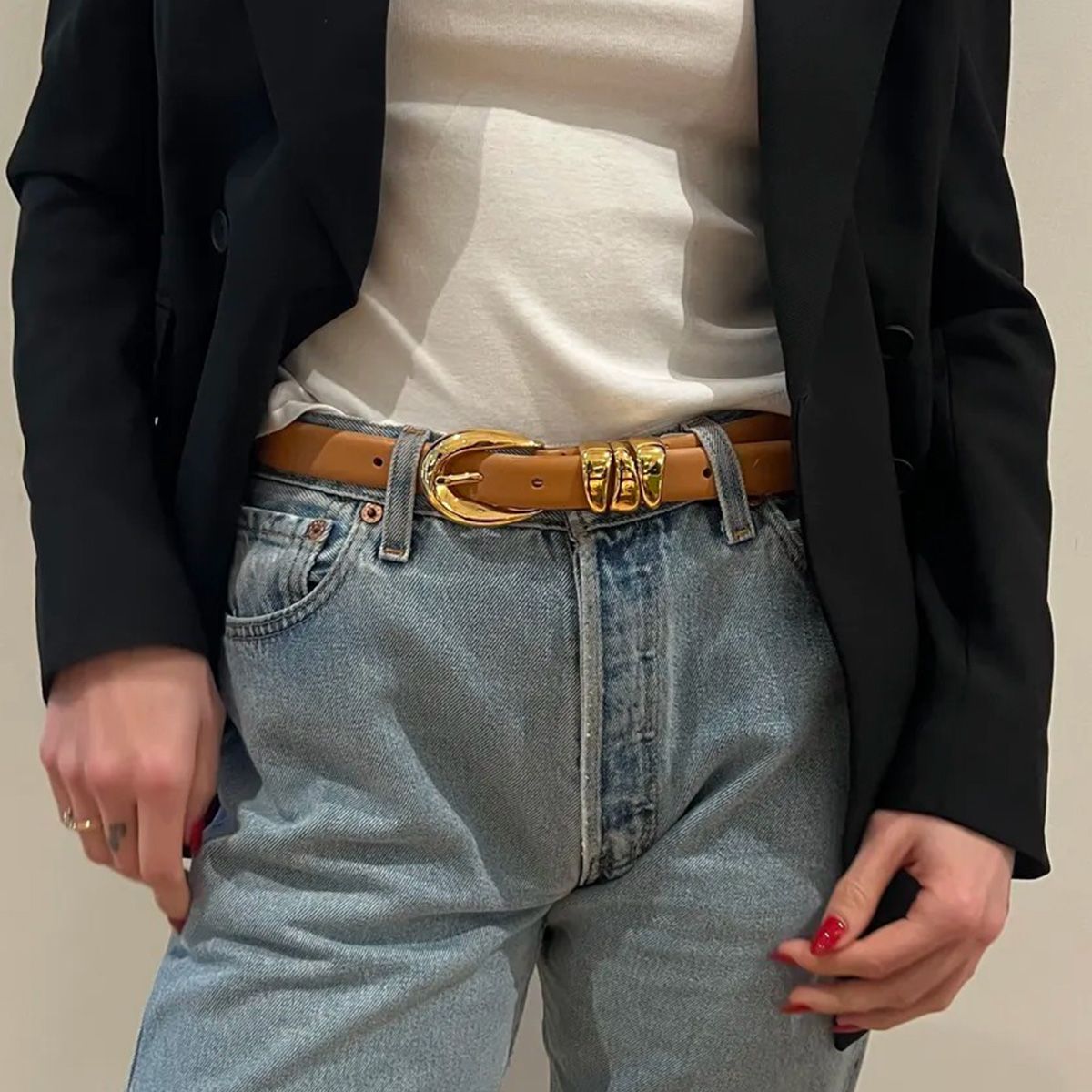“Our memories are,” Melissa Febos notes, “a pliable material.” This is the foundation of her newest book slash manifesto, Body Work: The Radical Power of Personal Narrative, which champions the transformative act of writing by way of personal wounds: secrets, traumas, vulnerabilities, and non-conformities. Just as powerfully, she reckons with the noxious assumption that we’re not worthy of telling our stories, hindering our instincts of exploration and release. Because, as she stated in the first of her four essays—which include themes of Writing Better Sex and The Art of Confession—“my resistance to and bias against memoir was not based in any lived experience as a writer or a reader. It was my own internalized sexism, calling from inside the house to warn me away from telling my own story.” Exasperated, she says: “Believe me, I wish this horse was dead.”
Febos has authored Whip Smart, Abandon Me, and Girlhood, texts of stirring introspective candor that plumbed the complex, charged experiences of her youth and her recent past, confronting in turn addiction, harassment, courting-and-refuting the male gaze, queer relationships, sex work, and the exquisite pains of wrestling with the written word. Presently a professor of nonfiction writing at the University of Iowa, Febos channels empathy—which she believes every emerging writer should practice and receive—into the emboldening cri de coeur that is Body Work.
“Writing is a form of freedom more accessible than many,” Febos remarks in her Author’s Note. “Let this book be a totem of permission, encouragement, proof, whatever you need it to be.” On a Zoom call, she discussed valorizing her own experiences, “paying it forward” to her readership, and being a full-on Libra plagued by indecision.
Was Body Work something you’d been tackling in tandem with your other writing? Did you feel you were responding as a teacher, as someone often-consulted about memoir?
I never planned to write a craft book about writing, but I’ve been teaching for more than 15 years, and writing for even longer than that. This book is drawn from what I observed and experienced, both as a writer and a teacher.
In our culture, we internalize [a dismissiveness about] telling our own stories. Once I started to resist that thinking myself, I started building these responses that I was saying over and over again to my students, and to myself. This book is really that distillation. I wrote a draft of “In Praise of Navel-Gazing” in 2017 and published an early version of it. That felt like a little geyser. I was so tired of hearing these arguments, and so tired of particular kinds of students feeling like they’re not entitled to tell their story and no one cares about their experience, even if they make beautiful art out of it. I became so frustrated that I was like, Alright, I’m just gonna write out everything I’m always telling them. And the response was really… I mean, people are still reading that essay. We’re desperate for permission! Then I wrote the second half of the book while I was waiting to publish my last book, Girlhood. So yeah, I was surprised, as I almost always am: Wow, it’s a book!
You write: “It is a logical fallacy to conclude that any writing with therapeutic effect is terrible.” And then further along, you also write: “being healed by writing does not excuse you from the extravagantly hard work of making good art.” Is there any distinguishable qualitative line between what comes out raw and what needs to be refashioned?
This logical fallacy was rampant in creative writing circles, and still is: that if it has therapeutic value, it can’t be good art. Which just makes no sense! For me, maybe in the early drafts—and certainly earlier in my career, when I didn’t really understand my own process—the very raw material would be preliminary, like journaling or notes. But as someone who has been cultivating and refining an artistic practice for 20 years, there is no part of the writing process where my artist mind is absent—and, in fact, the aesthetic tools of making literary art are a really important mediator for me between that raw material and those sort of “hot” emotions. I don’t want to just plunge into my most painful memories and overwhelming feelings. It’s being able to retreat or create some distance between myself and that material, by thinking about it in a kind of surgical way, and an imaginative way. There is a kind of objectivity that I have to have, to look at my own experience as a lump of clay to make something out of. That allows me to reach into it. Once I’m in there and I’m like, this is going to be an essay, my aesthetic tools are fully whirring and engaged. It’s crafted, which is why I continue to feel so frustrated hearing people speaking with the assumption that folks were publishing their diaries—as if it was so easy to just publish a book! Even the books that I don’t find successful have a tremendous amount of craft put into them. Nobody’s gonna get away with publishing purely therapeutic writing and calling it art.
Obviously that highlights the inherent misogyny built into such assumptions—that it’s just hysterical ladies prattling on.
No one says of Knausgård or Kerouac, like: bro, keep your diary to yourself. And I say that having loved some of the work of both those writers. It just doesn’t happen to men. It’s just not a part of the conversation. And in fact, it’s seen as transgressive when men are writing about interiority and the domestic and emotional realms.
“No one says of Knausgård or Kerouac, like: bro, keep your diary to yourself.”
That word, transgressive—you use the word disruptive in your book—alludes to landing at a kind of thinking beyond the way we’ve been schooled, with its narrow understanding of normativity. You talk about “writing through” that narrowness as a way to get to a more expansive place where things that have been marginalized can be centralized, and people can undo and redo whatever they want. But there’s a bit of a circularity to that, because to go to those places means that you have to have find a disruptive urge or transgressive impulse. How do you find that courage before you realize how liberating it can be?
I was gifted with a defiant spirit that I sometimes don’t understand—because I’m actually a huge people-pleaser—but I dropped out of high school and was like, I need to be a writer and had a hubris that carried me through my early life before I became, like, nestled in the bosom of the academy and a total rule-follower. We think of artistic practice as a solitary pursuit, but a lot of people who have the impulse to tell transgressive stories are not solitary. My transgressive spirit wouldn’t exist if it hadn’t been supported by a family who was like, yeah, go be an artist. Sounds great. When we think about other forms of transgressive action, like activism and social change, it’s very much a group activity. You can’t change society alone. We think of artistic practice done in a vacuum; you go away to your tower like Montaigne. And that’s not how writing happens. Writing happens within a community, within a care network of artists who are offering each other role models and witnessing each other’s work and being at the other end of phone calls to confirm that. Without that, it’s really—for most people—impossible, because it is so hard. Because it flies in the face of so much of the ways that we’re schooled, as you said.
We really need role models; we really need to be talking transparently with each other about the inherent challenges to those practices. We are asserting that space to tell our own story and to make space for our own experiences and feelings. I’ve had to work really hard to have a community that’s like, yes, it’s okay that you’re doing this—and, in fact, it’s important. In many ways, that’s why it felt possible and useful to write this book, because I was like, I know that most people did not go to college or grad school for writing and haven’t been immersed in this kind of community. And they might need someone to be like, this is an okay thing to do with your time—it’s okay to choose to do this instead of what someone else wants you to do.
“We think of artistic practice done in a vacuum; you go away to your tower like Montaigne. And that’s not how writing happens.”
I like that you acknowledge who your work is for—a lot of writers and artists say what they do is a purely for themselves and what happens to it out in the world is out of their hands. While that is true, I liked you that you discuss writing with a reader in mind who needs this. It provides the embrace of community even for someone who doesn’t actually have one IRL. It’s reaching out through the page.
I’m not gonna say that those other artists are liars [laughs] but I do understand. I feel like I’ve said something similar, because learning how to relate to your work after the fact is extremely painful. To create something in privacy and to have your own intimate relationship with it… for it to go out into the world for total strangers to assess its value? I mean, it’s horrifying. So it’s really important for artists—and it’s been really important for me—to focus on what the work means to themselves.
But if I was truly just doing it for myself, I don’t know that I would work as hard to make it beautiful, and to make it legible to other people. And I think the idea of a person who needs it is so fundamental to me doing that. I don’t like to work hard at things that don’t have a value. I’m barely capable of putting my best work into something that doesn’t have a pretty clear purpose in my mind. I’m very motivated by feeling like I’m in service to people who struggle with the things that I’ve struggled with. So I don’t picture a particular person that I know. But I picture a person who would benefit from my work the way that I might have benefited from it when I was looking for such a book. I am thinking of former students—or even my peers and my friends—who are brilliant artists yet unable to build a life around their practice because of those internalized voices that are not their own, that tell them that their story is not worth telling, that no one cares, that it is self-indulgent, and that their energy is best used elsewhere. This book is the first place where I’ve written about that directly: how important it is for me to have that image of an audience. It’s not an audience of critics—Oh, God, spare me!—it’s an appreciative audience that is hoping for the thing that I’m creating.
Body Work: The Radical Power of Personal Narrative
This is also addressed in the book: that the audience will most probably be female, that there’s a disinterest from men in women’s stories. There’s a chilling lopsidedness, because a man’s story is considered universal, and a woman’s story is for women. How do you think that can change? You’re working with developing writers: Have you seen changes, over the years?
This dynamic that you’re talking about, and that I write about, it’s the history of human civilization. It’s like, “men things” are for everyone and “women things” are for women—just like “white things” are for everyone and “BIPOC things” or “immigrant things” or anything that’s from a marginalized identity is only for that group, and considered “inferior,” too. But it’s undeniable, the way that that has changed. Like, I would never be a tenured professor—I would not even have been published not even that long ago. When I published my first book, people were like What is this feminist sex work story?! People were not fighting over it, I’ll say that! I did not get paid very much for it. But even over the course of my own career, I have seen things change, and an interest in queer literatures and experimental literatures and non-binary writers and trans writers—all of us able to do work that combines writing about the body and the interior with more “historically masculine” forms of intellectual and creative work. That has happened during my lifetime! It’s amazing, I’m so grateful. My work would not exist if that change had not happened, and other people had not broken ground on that.
But it’s not over—not even close. This is true for every kind of social change. And it’s a bummer to confront over and over again. But it starts with the internal work. For most of my career as a writing student, I was complicit in these arguments that I’m rebutting in this book. I don’t think we can stop doing that until we learn to discern between ideas based on our own experience and values from the ways that we’ve been conditioned to see value in literature. I was schooled almost entirely reading men. On my own time, I was reading queer and female authors. I felt guilty about that, like it wasn’t “serious” reading, or I wasn’t becoming well-versed enough in the Western canon as it was presented to me, like I was behind and under-equipped to be an academic and writer. That wasn’t very long ago. We really have to undertake a radical revision of our own values, and then talk about it openly with other people, and surround ourselves with others who are trying to do that work. I don’t know if human civilization has enough time left to fix it because of the climate crisis. But I will say that, whatever the long game, that work has been absolutely worth it in terms of making my own life meaningful, and making my life as an educator meaningful.
This interview has been edited and condensed for clarity.
This content is created and maintained by a third party, and imported onto this page to help users provide their email addresses. You may be able to find more information about this and similar content at piano.io





:quality(85):upscale()/2024/02/21/913/n/1922564/d5e88b1365d6632d40bcd8.35398600_.jpg)






















:quality(85):upscale()/2023/05/11/976/n/1922564/782262e2645d6b967847b4.74342194_.png)








